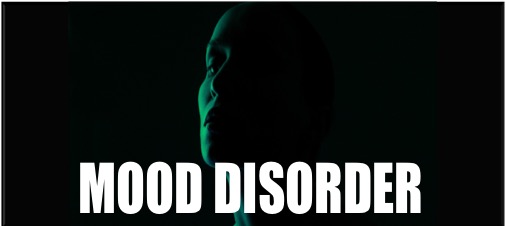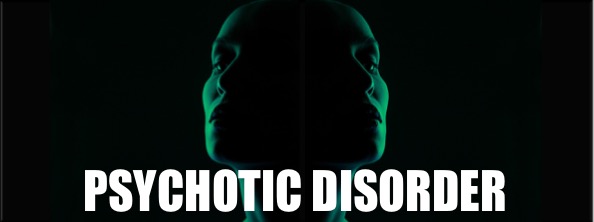Why Mental Health Awareness is so important?
In this blog, we will explain mental health with Mental Health Posters, Mental Health Awareness Month and Other Important information about days related to Mental Health Awareness.
Mental health is something which is a hot topic these days because it is considered as an critical part of general well-being in recent years. Unfortunately, many people become stigmatised when discussing about mental health difficulties.
Mental Health Poster
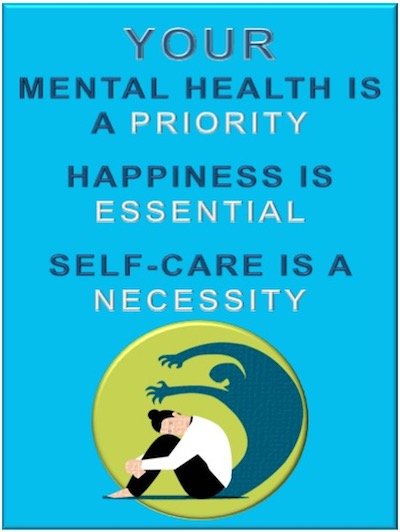
We will also talk about few celebrity with mental health issues. These celebrities has been open about their own mental health struggles.
It is great that few famous people with mental illness have come out and spoke about their mental health problems. This brave act of celebs helps others to remove stigma and come forward for the treatment they require.
Mental health is a critical component of total health and well-being. It describes our emotional, psychological, and social well-being. A range of elements, including genetics, environmental factors, and life events, can all have an impact on one’s mental health.
These are the Main Mental Health Conditions.
1. Anxiety Disorder
Anxiety disorders are a collection of mental health illnesses that are characterised by excessive concern, fear, or panic.
Few examples of Anxiety Disorders are – Generalized anxiety disorder, social anxiety disorder, and panic disorder.
2. Depression
Depression is a mood condition that causes sadness, people experience hopelessness, and and they don’t feel interested in any kind of activities. Depression can impair a person’s capacity to operate in everyday life.
3. Bipolar disorder
Bipolar disorder is a mental health condition that causes significant mood swings. These mood swings ranging from high (mania) to low (depression) might have an impact on a person’s energy, sleep, and behaviour.
4. Schizophrenia
Schizophrenia is known to be a persistent mental illness. It impairs ones capacity to think, feel, and behave clearly. It can cause hallucinations, delusions, and disorganised thinking.
5. Obsessive-compulsive disorder (OCD)
OCD is another example for mental health. People with OCD experience a pattern of unwanted thoughts and fears (obsessions) resulting them to do repetitive behaviours (compulsions). These obsessions and compulsions affect daily activities and cause significant problems.
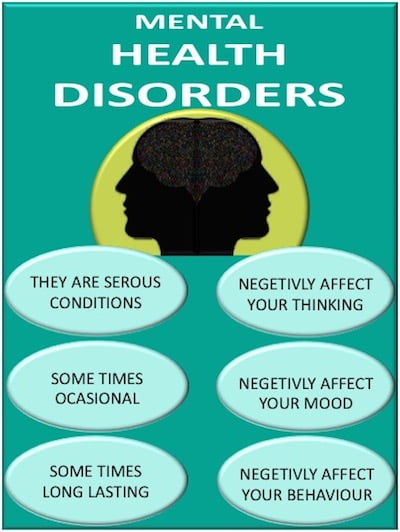
6. Post-traumatic stress disorder (PTSD)
PTSD is a mental health illness that can emerge after a stressful experience in life. Some of the major symptoms are avoidance behaviours, flashbacks, nightmares.
7. Eating disorders
Eating disorders are characterized by abnormal eating patterns. It is a mental health issue that can have a harmful impact on a person’s overall health including physical and mental health. Few Examples are anorexia nervosa, bulimia nervosa, and binge-eating disorder.
8. Attention deficit hyperactivity disorder
ADHD is a neurodevelopmental disease can have an impact on an individual’s academic, social, and occupational performance. It includes difficulties with concentration, hyperactivity, and impulsivity.
Celebrity with mental health issues
Many celebrities in the United States have openly discussed their difficulties with mental health disorders, including:
1. Demi Lovato
Singer and actress Demi Lovato has openly discussed her struggles with bipolar disorder, bulimia, and addiction.
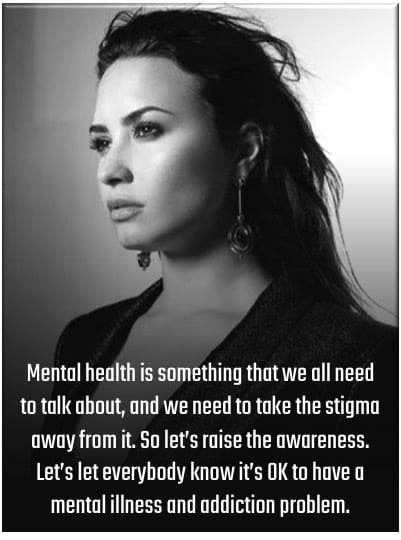
Demi Lovato’s Quote About Mental Health
Mental health is something that we all need to talk about, and we need to take the stigma away from it. So let’s raise the awareness. Let’s let everybody know it’s OK to have a mental illness and addiction problem.
2. Lady Gaga
Lady Gaga has spoken openly about her battles with post-traumatic stress disorder (PTSD) and depression. The charismatic singer has always advocated for mental health over the years. She has opened up many times about her personal experiences with mental health issues.
Lady Gaga’s Quote About Mental Health
I openly admit to having battled depression and anxiety and I think a lot of people do. I think it’s better when we all say: ‘Cheers!’ And ‘fess up to it.
3. Mariah Carey
Mariah Carey is a singer who diagnosed with bipolar disorder in 2001. Mariah Carey has openly discussed her battle with the mental health issue.
Mariah Carey’s Quote About Mental Health
It was too heavy a burden to carry and I simply couldn’t do that anymore. I sought and received treatment, I put positive people around me and I got back to doing what I love — writing songs and making music.
4. Michael Phelps
Olympic swimmer Michael Phelps has spoken about his depressive difficulties, which prompted him to consider suicide at one time.
Michael Phelps’s Quote About Mental Health
I felt like I didn’t want to be alive anymore and I felt for me that I was causing a lot of stress and issues for other people around me, so I thought the best thing for me to do was just leave.
I then just decided that it was time to take a step to try to find a different route, a different path.
5. Prince Harry
Prince Harry, Duke of Sussex, has been candid about his anxiety and bereavement difficulties, particularly in the aftermath of his mother, Princess Diana’s, death.
Prince Harry’s Quote About Mental Health
I really regret not talking about it. It is OK to suffer, but as long as you talk about it. It is not a weakness. Weakness is having a problem and not recognizing it and not solving that problem.
6. Dwayne Johnson
Dwayne Johnson – Actor and professional wrestler Dwayne “The Rock” Johnson has spoken about his struggles with melancholy following the end of his football career due to injuries.
Dwayne Johnson’s Quote About Mental Health
I found that, with depression, one of the most important things you could realize is that you’re not alone.
7. Kanye West
Kanye West, the rapper and fashion designer, has been candid about his battle with bipolar disorder, which he was diagnosed with in 2018.
Kanye West’s Quote About Mental Health
No one would ever choose to end up in a mental hospital and diagnosed with a mental disorder but god chose me to publicly go through this journey and it is beautiful.
8 Selena Gomez
Singer and actress Selena Gomez has spoken about her issues with anxiety and depression, which led to a professional break in 2016.
Selena Gomez’s Quote About Mental Health
The moment I received that information, I actually felt equal parts of terrified and relieved. Terrified, obviously, because that veil was lifted, but relieved that I had the knowledge of why I had suffered for so many years with depression and anxiety.
These celebrities have tried to raise awareness about mental health issues. They tried to lessen the stigma which is associated with getting required treatment for mental health issues.
Mental Health Awareness
Will smith mental health
Will Smith has not spoken extensively about the specific mental health issues he may have had. But he has been upfront about the importance of receiving treatment for mental health when necessary.
He expressed respect for his son Jaden’s desire to get help for his own mental health issues. He said “I’m proud of him for that, because he wants people to know that it’s okay to say, ‘Hey, I need some help.'”
Will has also commented on the value of self-reflection and self-care, claiming that he meditates and focuses on his mental health.
His advocacy for mental health awareness sets an example for others to prioritise their own mental health.
Kanye West Mental illness
Kanye West has spoken openly about his struggles with bipolar disorder, which is a mental illness characterised by dramatic mood swings that can range from manic highs to depressing lows.
In 2016, when he was hospitalised for tiredness, he received mental health treatment. Kanye openly explained his illness and how it has affected his life. He emphasised on the stigma associated with mental health, and said he wants to break down those barriers by openly sharing his own experiences.
Kanye’s experiences with mental health have been interwoven into his music also. His album “Ye,” includes lyrics about his bipolar condition along with his self-acceptance. It has been difficult for Kanye west and his family to deal with his mental health issues. But, it was his brave step to use his position for promoting awareness about mental health issues and the stigma associated with mental illness.
Mental Health Awareness
Mental health awareness is must. Because, Mental health is a state of your mental well-being that enables you to cope with the stresses of life, realize your abilities, learn well, work well, make choices and relate to others, and contribute to your community.
Normally the term “Mental health” includes your emotional, psychological as well as social well-being. It affects your thinking, how you feel and act as you deal with life. Sometimes people use this term “mental health” to mean the absence of any kind of mental illness.
Mental Health Awareness Month
Mental Health Awareness Month is observed in May. During this month, individuals, organizations, and communities come together to raise awareness about mental health, reduce stigma surrounding mental illnesses, and promote overall mental well-being. Various events, campaigns, and initiatives are organized to educate the public about mental health issues, emphasize the importance of mental health care, and encourage open conversations.
The goal of Mental Health Awareness Month is to foster understanding, provide support for those dealing with mental health challenges, and advocate for policies that prioritize mental health care. It’s an opportunity to promote a broader societal understanding of mental health and to encourage individuals to seek help when needed.
Mental Health Awareness Month Poster

Why mental health awareness is so important.
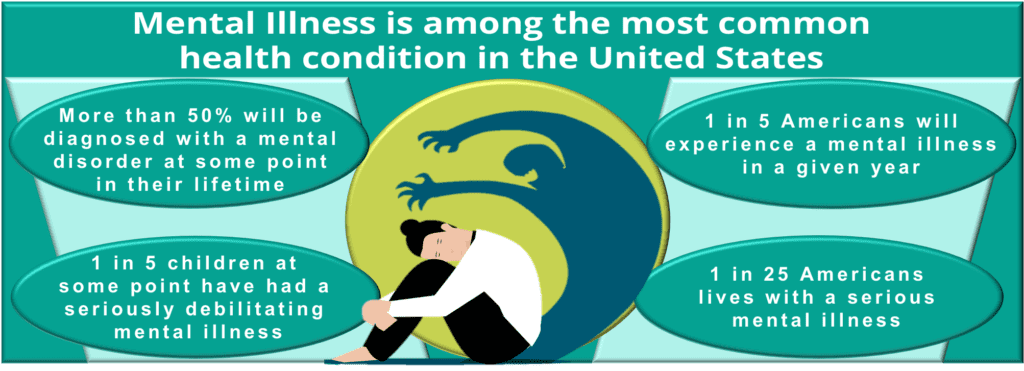
Mental disorders are serious conditions that negatively affect your thinking, mood, and behaviour. They can be sometimes occasional or long-lasting.
Over the course of your life, if you experience mental illness symptoms, your way of thinking, your mood and behaviour could be affected. There are so many factors contribute to your mental health conditions.
What is definition of mental health?
According to WHO : “Mental health is a state of mental well-being that enables people to cope with the stresses of life, realize their abilities, learn well and work well, and contribute to their community.”
What is - Mental health conditions
Mental health conditions include mental health disorders, psychosocial disabilities along with other mental states related to significant distress, impairment in functioning and risk of self-harm. People with these mental health conditions generally experience lower levels of mental well-being.
What is - Mental Health Disorders
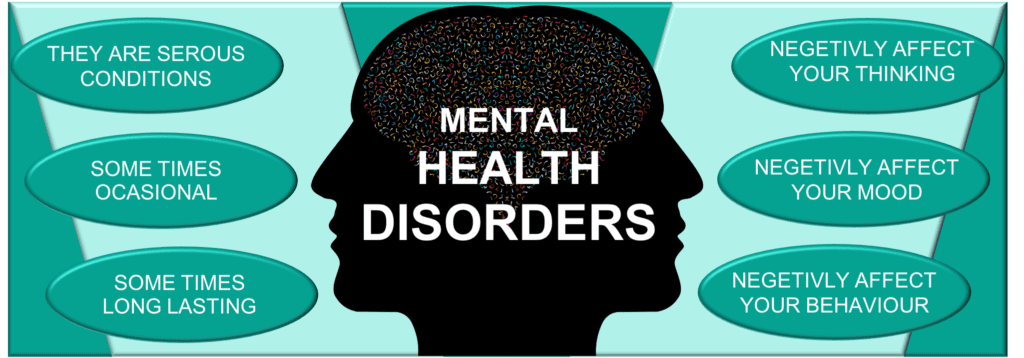
Mental disorders are serious conditions that negatively affect your thinking, mood, and behaviour. They can be sometimes occasional or long-lasting.
Mental health awareness is must over the course of your life, if you experience mental illness symptoms, your way of thinking, your mood and behaviour could be affected. There are so many factors contribute to your mental health conditions.
What affects mental health?
There are multiple factors that can affect your mental health, including:
• Some biological factors like genes and brain chemistry.
• Life experiences, like trauma or abuse.
• Family history of any kind of mental health conditions.
• Your lifestyle like diet pattern, physical activity level, and any substance abuse.
Effects of mental illnesses
They may affect your ability to relate to others and functioning in daily life. A mental health disorder somehow can affect how well you:
- Maintain your personal or family relationships.
- Function in social settings.
- Perform at work or school.
- Learn things at a level expected for your intelligence and age.
- Participate in other important activities.
Mental disorders are common. Almost half of all Americans diagnosed with one at some time in their life. But Mental Health Awareness is still an issue.
Social expectations and cultural standards also play an important role in defining mental health disorders. There are no common or standard measures across cultures, which determine whether a behaviour is normal or when that becomes disruptive. Some behaviour that is normal in one society may be a cause for concern in another.
But there are treatments. People with mental disorders can recover , and lots of of them recover completely.
How mental health is important
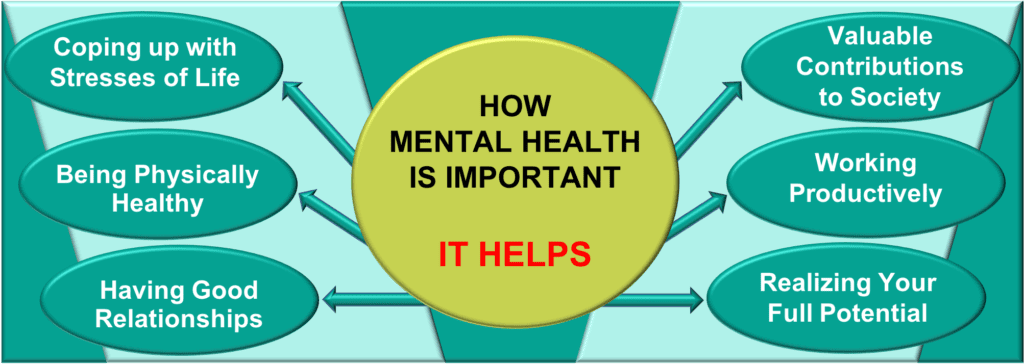
Your mental health awareness is important because it helps in:
- Coping up with stresses of life
- Being physically healthy
- Having good relationships
- Making meaningful and valuable contributions to your community and society
- Working productively
- Realizing your full potential
That is why mental health awareness is so important, because it can affect your physical health also. For instance, mental disorders can increase your risk of physical health issues like stroke, type 2 diabetes, and heart disease.
A mental illness makes you miserable and cause problems in your daily life, like at school or work place or in relationships. In most of the cases, symptoms are often managed with a combination of medications and talk therapy (psychotherapy).
What are the Symptoms of mental illness
When it is about your emotions, it becomes hard to know what is normal and what is not. Visible symptoms of mental illness may vary in people, based on the disorder, Conditions and other factors.
- There are many warning signs which indicates that you have a mental health problem. These warning signs include:
Feeling sad or down. - Confused thinking or reduced or lesser ability to concentrate.
- Extreme feeling of guilt or excessive fear and worries.
- Extreme mood changes of considerable lows and highs.
- Withdrawal from close friends and activities.
- Experiencing significant tiredness and low energy. Notable problems in sleeping.
- Detachment from reality (which is called delusions), paranoia or hallucinations.
- Not able to handle routine problems or stress.
- Trouble in understanding and relating to people and situations.
- Problems with alcohol or drug use.
- Major changes in eating habits.
- Sex drive changes.
- Excessive anger, hostility or violence.
- Suicidal thinking.
Sometimes the symptoms of mental health disorder also appear as physical problems, like stomach pain, back pain, headaches, or other unexplained aches and pains.
World Mental Health Day
World Mental Health Day is observed on October 10th every year. This day is globally recognized as an opportunity to raise awareness about mental health issues, promote mental well-being, and advocate for efforts to support those dealing with mental health challenges. Various organizations, mental health professionals, and individuals around the world engage in activities, events, and campaigns to address the stigma associated with mental illnesses and emphasize the importance of mental health care.
The theme for World Mental Health Day varies each year, focusing on different aspects of mental health. The overall goal is to encourage open conversations, educate the public, and provide resources to promote mental health and support those facing mental health issues.
Different types mental disorders - Mental health awareness.
Anxiety disorder
It is normal to have some level of anxiety. You might feel nervous or anxious if you need to tackle a problem at work, attend an interview, take a test or make a crucial decision. And anxiety can even be beneficial, for instance, sometimes anxiety helps us notice dangerous situations and pay attention, so we stay safe.
But sometimes an anxiety disorder goes beyond the regular nervousness, and it involves more than temporary worry or fear. Their fear about routine situations becomes intense, there worry becomes constant and excessive overtime.
Anxiety disorders involve repeated and sudden feelings of intense anxiety and fear or terror that reach to the peak within minutes.
Anxiety Disorder Symptoms
Excessive fear (or worry) is the major symptom of anxiety disorder. Anxiety disorder also can make it hard to stay still, breathe, sleep and concentrate. Symptoms of anxiety disorder vary with the type of anxiety disorder a person have. Some of the common symptoms are:
- Panic, fear, and uneasiness. Feeling of danger
- Not having the ability to stay calm and still. Sleep problems
- Cold, sweaty, numb and tingling hands as well as feet
- Shortness of breath
- More quickly or faster breathing than normal.
- Heart palpitations
- Dry mouth, Nausea, Tense muscles, Dizziness.
- Thinking about some problem over and over again and not being able to stop.
- Inability to concentrate
- Intensely avoiding feared objects or places.
Mood disorder
A mood disorder may be a mental health condition that primarily affects your emotional state. It’s a disorder that makes you experience long periods of extreme happiness, extreme sadness or both. Certain mood disorders involve other persistent emotions, like anger and irritability.
Changes in behaviour is a main symptom of mood disorders. This behavioural change have a significant impact on ones ability to perform routine activities, like work or school.
The most common types of mood disorders are major depression, dysthymia (dysthymic disorder), manic depression , mood disorder thanks to a general medical condition, and substance-induced mood disorder.
What are the symptoms of mood disorders?
Depending on age and the type of mood disorder, an individual may have different symptoms of depression. the subsequent are the most common symptoms of a mood disorder:
- Ongoing sad, anxious, or “empty” mood
- Feeling hopeless or helpless
- Having low self-esteem
- Feeling inadequate or worthless
- Excessive guilt
- Repeating thoughts of suicide or death. Attempting to suicide or even wishing to die.
- Loss of interest in those activities also which were once enjoyed, including sex.
- Relationship problems
- Trouble sleeping or sleeping too much or feeling sleepy all the time.
- Changes in appetite and/or weight
- Decreased energy
- Trouble concentrating
- Reduced ability to make decisions
- Frequent physical complaints like headache, stomach ache, or tiredness that don’t get better with treatment
- Very sensitive to failure or rejection
- Irritability, hostility, or aggression
In mood disorders, these feelings are more intense than what an individual may normally feel from time to time. It becomes a concern if these feelings continue over time and interfere with one’s interest in family, friends, community or work.
The symptoms of mood disorders may appear as other conditions or mental health problems. Your mood disorder is unlikely to easily go away on its own, and it’s going to get worse over time. Seek professional help before your mood disorder becomes severe, it’s going to be easier to treat early on.
Mental Health Awareness
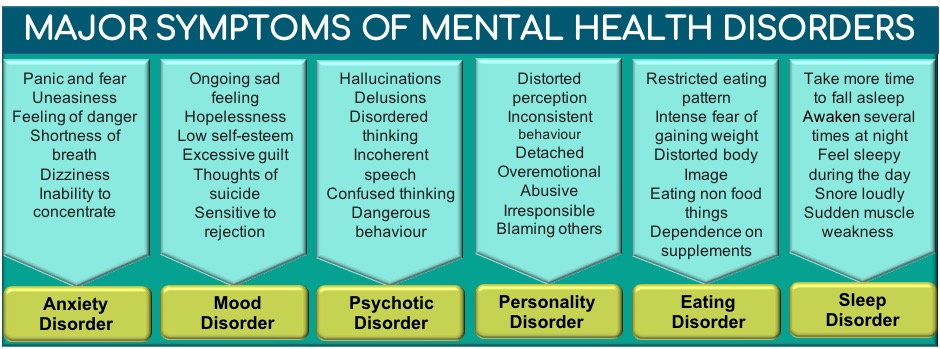
Psychotic disorder
Psychotic disorders are considered as severe mental disorders. They are major cause of abnormal thinking and perceptions.
People with psychoses lose touch with reality. When a psychotic episode occurs, people become unsure about what’s real and what isn’t real
Two main symptoms of psychotic disorder are delusions and hallucinations. Delusions are false beliefs, like thinking that someone is plotting against you or that the TV is sending you secret messages. Hallucinations are false perceptions, like seeing, hearing, experiencing or feeling something which is not around. An individual behaving in this manner is often referred to as being schizophrenic.
People with manic depression may also have psychotic symptoms. Other problems which will cause psychosis include alcohol and some drugs, brain tumours, brain infections, and stroke.
Symptoms of psychotic disorder
The main ones are hallucinations, delusions, and disordered sorts of thinking.
Hallucinations means seeing, hearing, experiencing or feeling things that does not exist. As an example , someone might see things that are not there, hear voices, smell odours, have a “funny” taste in their mouth, or feel sensations on their skin although nothing is touching their body.
Delusions are false beliefs that don’t get away even after they’ve been shown to be false. for instance , an individual who is certain about his food is poisoned, whether or not someone has shown him that the food is fine, features a delusion.
Other possible symptoms of Psychotic Illnesses include:
- Disorganized or incoherent speech
- Confused thinking
- Strange, possibly dangerous behaviour
- Slowed or unusual movements
- Loss of interest in personal hygiene
- Loss of interest in activities
- Problems at college or work and with relationships
- Cold, detached manner with the lack to express emotions
- Mood swings or other mood symptoms, like depression or mania.
People don’t always have the identical symptoms, and that they can change over time in the same person.
Personality disorder
Personality is a way of thinking, feeling and behaving that creates a person different from other people. Personality disorders are among the least understood mental health conditions. Scientists are still trying to determine the cause of them.
A personality disorder is the way of thinking, feeling, reacting and behaving that differs from the expectations. Personality disorders can cause a distorted perception of reality, abnormal behaviour and distress in different aspects of life, including work, relationships and social functioning.
A personality disorder is that mental health condition which involves long-lasting and disruptive patterns of thinking, feeling, behaviour, mood and referring to others. These patterns cause an individual significant distress and impair their ability to function properly.
In few cases you dont realize that you have a personality disorder, because your way of thinking and behaving seems absolutely natural to you, and you blame others for the challenges you face.
Symptoms of Personality disorder
- Some general signs of individuals with a personality disorder include:
Their behaviour is inconsistent, frustrating and confusing to loved ones and people they interact with. - They can have issues in understanding acceptable ways to treat others and behave around them.
- They could also be unaware of how their behaviours cause problems for themselves and/or others.
- If they’re a parent, their parenting style could also be detached, overemotional, abusive or irresponsible. This will sometimes lead to physical, emotional or mental issues in their children.
Eating disorder
Eating disorders are a variety of psychological conditions that develop unhealthy eating habits. They could start with an obsession with food, weight , or body shape.
Most eating disorders involve focusing an excessive amount on your weight, body shape and food, resulting in dangerous eating behaviours. These behaviours can significantly impact your body’s ability to get appropriate nutrition.
Eating disorders can harm the guts , gastrointestinal system , bones, and teeth and mouth, and cause other diseases.
Eating disorders may cause emotional distress along with significant medical complications. They even have the highest mortality rate of any mental disorder.
Symptoms of eating disorder
Not everyone will have every sign or symptom, but certain behaviours may signal an issue.
- very restricted eating patterns
- intense fear of gaining weight or persistent behaviours to avoid gaining weight, despite being underweight/ typical weight
- a relentless pursuit of thinness and unwillingness to take care of a healthy weight
- a distorted personal body image and denial of being seriously underweight
- repeatedly binge eating episodes with a sense of lack of control
- recurrent episodes of inappropriate purging behaviours to stop weight gain
- self-esteem completely influenced by body shape and weight
- despite not feeling hungry, eating huge amounts of food rapidly, in secret, until uncomfortably full.
- feeling loss of control during episodes of binge eating
- feelings of distress, like shame, disgust, or guilt, when brooding about the binge eating behaviour
- no use of purging behaviours, like calorie restriction, vomiting, excessive exercise, or laxative or diuretic use, to catch up on the binge eating
- eating things that aren’t considered food and that do not provide nutritional value.
- person regurgitates food they need previously chewed and swallowed, re-chews it, then either re-swallows it or spits it out
- avoidance or restriction of food intake that forestalls the person from eating enough calories or nutrients
- eating habits that interfere with typical social functions, like eating with others
- weight loss or poor development for age and height
- tube feeding, dependence on supplements because of nutrient deficiencies.
Sleep disorder
What is sleep? Sleep may be a complex biological process. While you are sleeping, you are not conscious, but your brain and body functions are still active. they’re doing a number of important jobs that help you stay healthy and function at your best. So once you don’t get enough quality sleep, it does make you feel tired. It can affect your physical and psychological state , thinking, and daily functioning.
What are sleep disorders?
Sleep disorders are those conditions that disturb your regular sleep patterns. These conditions impair your sleep or prevent you from getting restful sleep.
Most people normally experience sleeping problems due to stress, hectic schedules, and some other outside influences. However, when these issues begin to occur on a daily basis and interfere with daily life, they indicate a sleeping disorder.
There are many various types of sleep disorders. the highest ones are:
- Insomnia.
- Sleep apnea.
- Restless legs syndrome.
- Narcolepsy.
What are the symptoms of sleep disorders?
The symptoms of sleep disorders depend upon the specific disorder. Some signs that you simply may have a sleep disorder include that:
- You regularly take atleast 30 minutes each night to fall asleep
- You regularly awaken several times each night and then have trouble falling back to sleep, otherwise you wake up too early in the morning
- You often feel sleepy during the day, take frequent naps, or go to sleep at the wrong times during the day
- Your bed partner says that once you sleep, you snore loudly, snort, gasp, make choking sounds, or stop breathing for brief periods
- You have creeping, tingling, or crawling feelings in your legs or arms that are relieved by moving or massaging them, especially within the evening and when trying to fall asleep
- Often, your legs or arms jerk during sleep
- You have dreamlike experiences while falling asleep.
- You have episodes of sudden muscle weakness once you are angry or fearful, or once you laugh
- You feel as if you cannot move when you first wake up
Substance abuse
Substance abuse isn’t something you should take lightly. It occurs once you use alcohol, prescription drug , and other legal and illegal substances an excessive amount of or in the wrong way.
Substance abuse differs from addiction. many of us with substance abuse problems are able to quit or can change their unhealthy behaviour. Addiction, on other hand, may be considered as a disease. It means you cannot stop using things even when it causes you harm.
Halenesspro Opinion - Mental Health Awareness
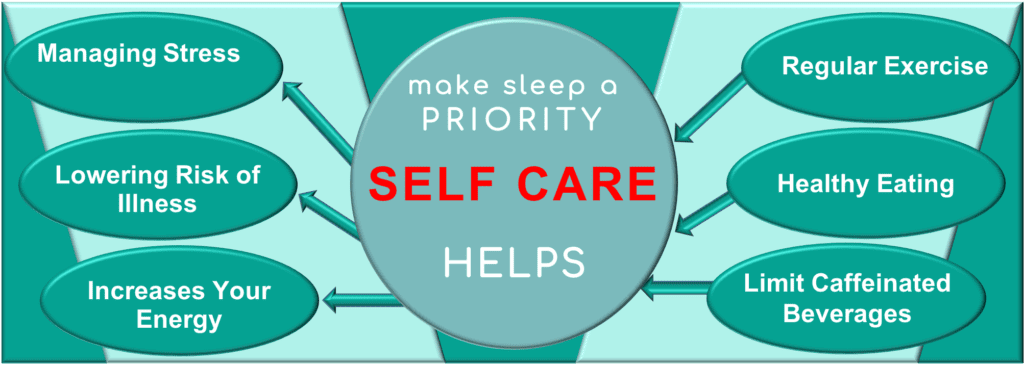
Mental health includes emotional, psychological, and social well-being. It affects how we expect, feel, act, make choices, and relate to others. Mental health is more than the absence of a mental illness, it’s essential to your overall health and quality of life. thats why Mental Health Awareness is a must.
Self-care can play a big role in maintaining your mental health and help support your treatment and recovery if you have a mental illness. Self-care means taking the time to try to to things that help you live well and improve both your physical health and mental health.
Mental Health Awareness and Self-care can help in managing stress, lower your risk of illness, and increase your energy. Even small acts of self-care in your lifestyle can have a big impact. Regular exercise, healthy eating, regular meals will help. Stay hydrated and limit caffeinated beverages like soft drinks or coffee, try a soothing activities, make sleep a priority, specialise in positivity and stay connected with those who can provide emotional support and practical help.


